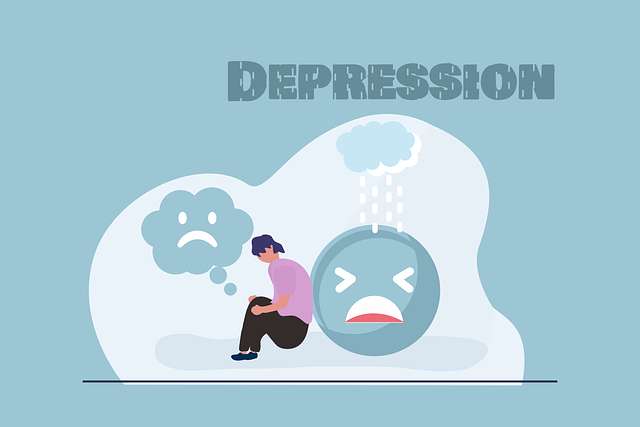Mental health professionals must navigate complex therapy for cancer issues while managing their own emotional wellness. Effective risk management, focusing on re-traumatization and trigger avoidance, is key to providing safe care. This involves tailored assessments, communication strategies, and supportive environments. Ongoing training, self-care, and regular plan reviews enhance resilience and client outcomes in this dynamic field, especially when addressing therapy for cancer issues.
Mental health professionals confront unique risks daily, from complex patient cases to potential ethical dilemmas. Effective risk management planning is essential to ensure well-being and mitigate challenges. This article guides therapists through a comprehensive approach to navigating risks in their practice. We explore key areas such as understanding the nuances of risk in mental health, identifying specific hazards, developing tailored strategies for mitigation, and implementing a dynamic review process. By adopting these practices, therapists can enhance resilience and deliver quality care, even when facing complex issues like cancer-related therapy.
- Understanding Risk in Mental Health Practice
- Identifying Potential Hazards for Therapists
- Developing Effective Risk Management Strategies
- Implementing and Reviewing the Plan: A Continuous Process
Understanding Risk in Mental Health Practice

Understanding risk within mental health practice is paramount to ensuring safe and effective care for both professionals and clients. In this context, risk goes beyond mere clinical considerations, encompassing emotional, relational, and ethical dimensions unique to therapeutic settings. Mental wellness professionals must be attuned to the potential for re-traumatization, where past traumatic experiences can resurface during therapy, impacting both the therapist and client. This heightened awareness necessitates robust trauma support services and empathy-building strategies to foster a safe and supportive environment.
The dynamic nature of mental health work means professionals are frequently confronted with complex scenarios that demand nuanced risk management. For instance, certain therapeutic approaches may evoke intense emotions or trigger memories related to cancer issues, underscoring the need for professionals to be well-equipped with coping mechanisms and self-care practices. By proactively addressing these risks, mental wellness practitioners can enhance their resilience, improve client outcomes, and contribute to a more robust therapeutic ecosystem that prioritizes both professional and client mental wellness.
Identifying Potential Hazards for Therapists

Therapists, much like their clients, face a unique set of challenges that can pose significant risks to their mental wellness. Identifying potential hazards is a crucial first step in effective risk management planning. One prominent concern for therapists is the impact of cancer issues both personally and professionally. This may manifest as dealing with clients who have cancer, or even managing the stress and anxiety associated with one’s own health or that of loved ones.
Additionally, therapists often find themselves navigating complex interpersonal dynamics, which can lead to professional conflict resolution techniques becoming essential tools. Work-life balance is another area of vulnerability; long hours and high-stress situations can contribute to burnout, a significant risk factor for mental health professionals. Implementing robust stress management strategies and prioritizing self-care are vital to mitigate these risks, ensuring therapists remain equipped to provide the best care possible.
Developing Effective Risk Management Strategies

In the dynamic field of mental health care, effective risk management planning is paramount to ensuring both client safety and professional resilience. For therapists specializing in cancer issues, tailored strategies are essential. These strategies must encompass a multifaceted approach, beginning with comprehensive risk assessments that consider not just the client’s medical history but also their emotional and psychological vulnerabilities. By integrating communication strategies that foster open dialogue, professionals can anticipate potential triggers and mitigate risks proactively.
Moreover, cultivating a supportive therapeutic environment is crucial for managing risks. This involves addressing the pervasive issue of mental illness stigma reduction efforts, creating a safe space where clients feel empowered to share their experiences without fear of judgment. Through ongoing training and self-care practices, mental health professionals can develop the skills necessary to navigate complex situations with grace and expertise, ultimately enhancing their ability to provide quality therapy for cancer issues while minimizing potential risks.
Implementing and Reviewing the Plan: A Continuous Process

Implementing a risk management plan is not a one-time task but a continuous process for mental health professionals. It requires regular review and updating to ensure its effectiveness and relevance, especially as practices evolve and new challenges emerge. This dynamic nature highlights the importance of integrating it into the daily workflow. Therapists should treat the plan as a living document, constantly assessing and adapting based on client outcomes, changing legal landscapes, and personal growth.
Regular reviews provide an opportunity to assess whether the strategies outlined are successfully mitigating risks related to therapy for cancer issues and other complex conditions. By examining these aspects, professionals can identify areas needing improvement, enhance their Emotional Intelligence, and better support clients’ needs. Moreover, such continuous review fosters a culture of accountability and ensures that community outreach program implementations align with current best practices in stress management.
Mental health professionals must navigate complex emotional landscapes, making risk management planning crucial. By understanding potential hazards like boundary blurring, burnout, and ethical dilemmas, therapists can develop robust strategies. Effective risk mitigation involves setting clear boundaries, prioritizing self-care, and fostering a supportive work environment. Continuous review and adaptation are key to ensuring resilience in the face of challenges, especially when addressing therapy for cancer issues or other sensitive topics. This dynamic approach ensures professionals remain equipped to provide quality care while safeguarding their well-being.














